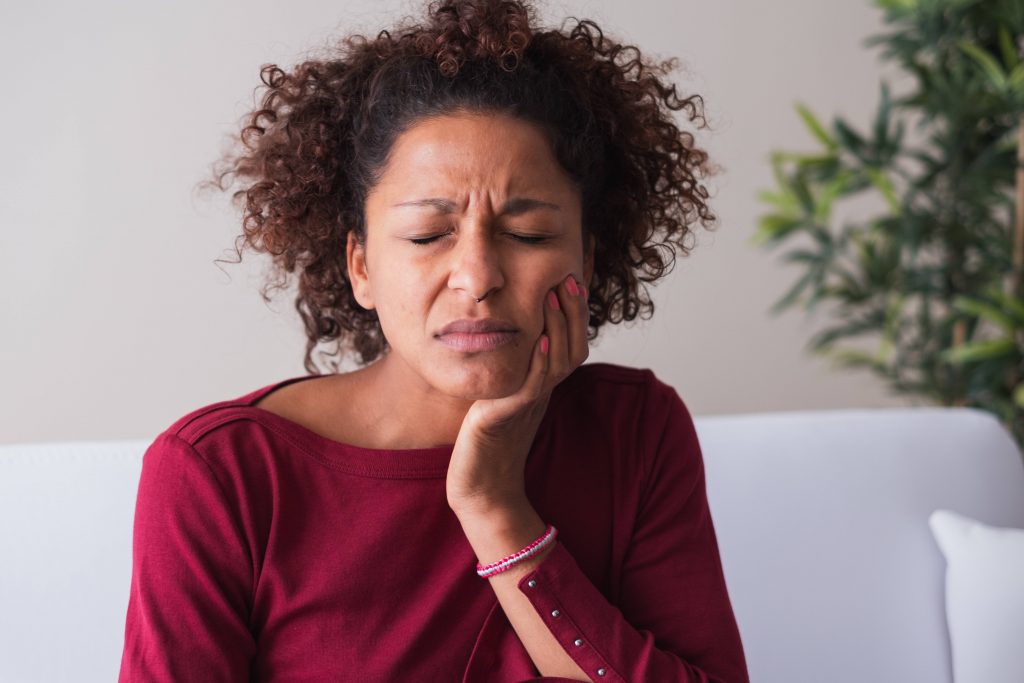
DEAR MAYO CLINIC: I’ve had what I think is burning mouth syndrome for about two months and it’s getting worse, not better. Are there any at-home treatments that will make it less uncomfortable?
ANSWER: Before you try any treatments, I recommend you first get a thorough evaluation from a health care provider who is familiar with burning mouth syndrome. It’s important to rule out underlying medical conditions that could be contributing to your symptoms. Then, if the condition truly is burning mouth syndrome, a wide variety of treatment options are available, including self-care steps that may reduce discomfort.
Burning mouth syndrome is a persistent feeling of burning in the mouth that is not due to mouth abnormalities or other health issues. About 2% of the population is affected by it. The burning sensation often is felt on the tip, sides and top of the tongue; the roof of the mouth; and the inside of the lips. However, it may occur anywhere in the mouth. It also can cause you to experience a bitter or metallic taste, as well as tingling, stinging or numbness. These symptoms may come and go, increase gradually as the day wears on, or be constant. Some people have the feeling of dry mouth.
Burning mouth syndrome that can’t be linked to an underlying medical condition is referred to as primary burning mouth syndrome. This is thought to be caused by dysfunction of the nerves that control pain and taste. Secondary burning mouth syndrome means your health care provider has found an underlying cause of your discomfort.
Some of the potential triggers of burning mouth syndrome include hormonal changes, dry mouth, and nutritional deficiencies — especially vitamin B deficiency. But it also can be caused by gastroesophageal reflux disease; allergies; or reactions to foods, flavorings, fragrances or dyes. Psychological factors, such as anxiety, depression or stress, and some oral habits, such as tongue thrusting, biting the tip of your tongue and grinding your teeth, also can contribute to discomfort.
Many medications can cause dry mouth. That, in turn, can lead to a burning feeling. For example, dry mouth is often a side effect of antihistamines, diuretics and tricyclics. If a medication is suspected to be the cause of your symptoms, your health care provider may be able to recommend an alternative.
If you have secondary burning mouth syndrome, treating the underlying cause should eliminate or at least greatly reduce symptoms. Effectively treating primary burning mouth syndrome is more complicated. Research has yet to prove or disprove the effectiveness of available treatments. Still, that doesn’t mean these treatments can’t provide relief.
Although there is no cure for burning mouth syndrome, there are treatments that may reduce your symptoms and make the condition easier to handle. First, you can try a number of self-care steps at home. They include using mild toothpaste, sipping water throughout the day, chewing sugarless gum, sucking on sugarless candy and avoiding mouthwash. You also may want to try over-the-counter products intended for dry mouth relief, as they also can help ease burning mouth syndrome.
In addition, you should avoid spicy foods and carbonated beverages. They can make burning mouth syndrome worse. Acidic foods also may aggravate your symptoms. These include foods that are tomato-based or vinegar-based, as well as citrus fruits and foods that contain citric acid. Some people with burning mouth syndrome find it helpful to avoid chocolate, too.
Your health care provider also may recommend a prescription medication that may help with burning mouth syndrome. Options include topical medications that are used just in the mouth, as well as medications taken in pill form. Both can help with pain relief.
An approach to managing painful chronic conditions called cognitive behavioral therapy can be useful for people with burning mouth syndrome. This involves working with pain management specialists to learn techniques that help make daily pain less disruptive.
Although symptom improvement may be gradual, one-half to two-thirds of people with burning mouth syndrome notice at least some improvement in their symptoms within a few months of treatment. Work with your health care provider, who can help you develop a treatment plan to minimize your symptoms and control burning mouth syndrome. — Dr. Rochelle Torgerson, Dermatology, Mayo Clinic, Rochester, Minnesota







